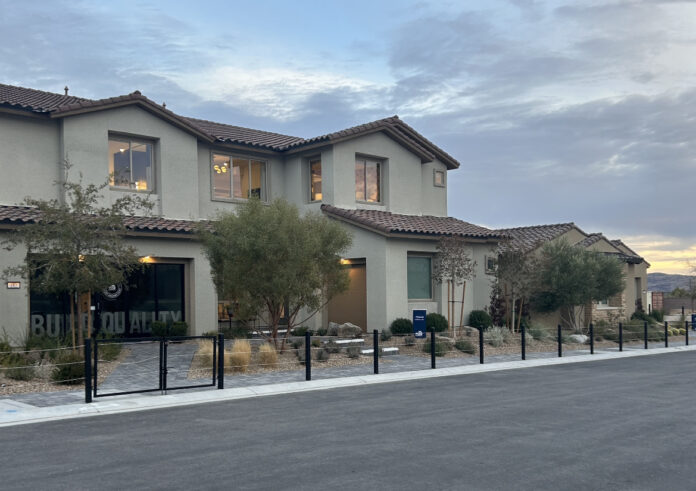At the end of 2020, Nevada’s housing market made record-breaking home sales due to the casinos reopening and the start of our economic recovery from the COVID-19 pandemic, according to KTNV.
KTNV reported low mortgage rates and an increase in remote work towards the end of 2020 continued to create an influx in home sales in Nevada, causing even more potential buyers to contribute to our market.
As 2023 continues to progress, Nevada residents are eager to see how the housing market will compare to the previous record-breaking years. However, as we stray further away from the repercussions of the pandemic we are starting to see a decline in home sales in Nevada.
Declining home sale rates have been raising concerns for home builders, real estate agents and current residents of Nevada. This shift in Nevada’s housing market has people questioning what this means for the future of our real estate market and if Nevada’s homes will be able to maintain their affordability.
“The market is dependent on what the Federal Reserve System [Fed] does with the rates each year,” stated Nicholas Irwin, a professor in the department of economics at UNLV.
“The housing market goes through these seasonal cycles,” Irwin continued. “We see an increase in houses on the market from spring to summer and it starts to simmer out towards the fall, but we should see mortgage rates start to fall by 2024 or 2025.”
Continuing the discussion of the current high mortgage rates, Irwin elaborated that home sales will not drastically decline if the buyer believes that they will be able to refinance their home in the near future. He also mentioned that Nevada home prices may not be as affordable as they once were, but when compared to neighboring states, it is still considered cheaper.
Irwin also proposed that Clark County may have to start building suburban neighborhoods further out from the city in order to produce more affordable homes to put on the market.
However, the issue of being zoned for a school that is sufficient enough for kids to receive an education that sets them up for success is a highly valuable aspect that some families will not want to give up for more affordable homes.
According to the National Association of Realtors, there is an anticipated 6.8% decline in home sales, meaning that Nevada will continue to see a decline in home sales from its 2020 housing boom. However, according to Forbes, economists do not believe that the decline in the housing market will lead to a crash.
Although the rising housing prices and mortgage rates have been pushing Nevada further away from affordable housing, we are seeing trends that are bringing housing prices back down. Redfin has determined that housing prices are down 3.7% since last year. In reality, these prices will probably not ever reach the affordability that they were before, but the slight decrease creates hope for the future of Nevada’s housing market to continue to create affordable homes.
Go Banking Rates states that experts expect to see a drop in mortgage rates by this summer, which will hopefully reverse the declining sales of homes within the Nevada housing market.
However, the mortgage rates remain in the power of the Federal Reserve System, so we will have to wait for their decisions to determine if these predictions are correct.
With the many unknown factors of the economy and the federal funds rate, the future of the Nevada housing market remains uncertain. As for now, home sales continue to decrease due to the high mortgage rates and housing prices.
Coming down from a record-breaking year, it is not surprising to see a decline in housing sales. Luckily, many experts continue to reassure the public that there will most likely not be a housing market crash within 2023. Despite the rising prices and rates, residents of our bordering states (like California) will continue to move into Nevada with factors such as Nevada’s lack of state income tax, limiting the amount of affordable housing. Southern Nevada must start looking into expanding their construction of suburban neighborhoods if it would like to continue to have affordable housing available.

